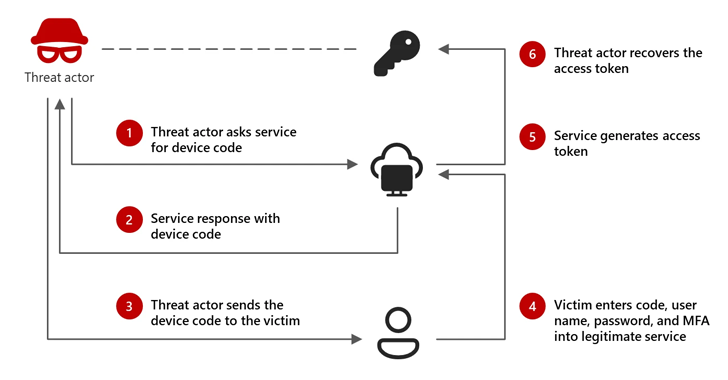
[ad_1]
On Tuesday, Google introduced a new, free consumer version of its AI code completion and assistance tool, Gemini Code Assist, and which the company calls Gemini Code Assist for Individuals. The company also rolled out Gemini Code Assist for GitHub, a code review “agent” designed to automatically look for bugs in code and offer suggestions directly within GitHub.
Build a website that pays you back with real revenue.
Code Assist for Individuals lets developers use a chat window to talk in natural language with a Google AI model that can access and edit their codebase. Much like GitHub’s popular Copilot tool, Gemini Code Assist for Individuals can fix bugs, complete sections of code, or explain parts of the codebase that don’t make sense.
Google’s AI coding assistant uses a variant of the company’s Gemini 2.0 AI model that’s been fine-tuned for coding applications. Gemini Code Assist for Individuals can integrate with popular coding environments such as VS Code and JetBrains via plugins, and works across many popular programming languages.

Notably, Code Assist for Individuals offers 180,000 code completions a month, which is 90 times the usage cap of the free GitHub Copilot plan (2,000 code completions a month). Code Assist for Individuals also comes with 240 chat requests a day, close to 5 times the number of requests the free GitHub Copilot plan offers.
The model powering Code Assist for Individuals has a 128,000-token context window, which Google says is over four times larger than what the competition offers. That means the model can take in more code in a single prompt, allowing it to reason over more complicated codebases.
Developers can sign up for the free public preview of Gemini Code Assist for Individuals beginning Tuesday.
As for Gemini Code Assist for GitHub, it automatically scans pull requests to look for bugs and offers additional possibly helpful recommendations.
The two tools arrive as Google ramps up its efforts to compete with Microsoft and its subsidiary, GitHub, in the developer tools space. Seven months ago, Google hired Ryan Salva, who previously led the GitHub Copilot team, to spearhead Google’s work on developer tooling.
By offering a free AI coding assistant with very high usage caps, Google hopes to steer developers early in their careers toward Code Assist, Salva told TechCrunch in an interview. Salva expects at least a few of those developers to someday upgrade to an enterprise Code Assist plan, which is where Google will make its money.
Google has been selling Gemini Code Assist to businesses for about a year. The company announced in December that the AI coding assistant would soon integrate with third-party tools from GitLab, GitHub and Google Docs. Enterprise Code Assist tiers add features like audit logs, integration with other Google Cloud products, and customization for private repositories.
[ad_2]
Source link
Related posts:
Stay Safe Online: Essential Tips for Safer Internet Day
Is Your Phone Your Best Friend or a Silent Spy?
Wipe Your Digital Footprints with Data Wipe Software
No, you’re not fired – but beware of job termination scams
DeceptiveDevelopment targets freelance developers
Fake job offers target coders with infostealers
Belarus-Linked Ghostwriter Uses Macropack-Obfuscated Excel Macros to Deploy Malware
LightSpy Expands to 100+ Commands, Increasing Control Over Windows, macOS, Linux, and Mobile
CISA Adds Microsoft and Zimbra Flaws to KEV Catalog Amid Active Exploitation
Malicious PyPI Package "automslc" Enables 104K+ Unauthorized Deezer Music Downloads
CERT-UA Warns of UAC-0173 Attacks Deploying DCRat to Compromise Ukrainian Notaries
Three Password Cracking Techniques and How to Defend Against Them
New Linux Malware ‘Auto-Color’ Grants Hackers Full Remote Access to Compromised Systems
SOC 3.0 - The Evolution of the SOC and How AI is Empowering Human Talent
Leaked Black Basta Chat Logs Reveal $107M Ransom Earnings and Internal Power Struggles
Microsoft: Russian-Linked Hackers Using 'Device Code Phishing' to Hijack Accounts
AI-Powered Social Engineering: Ancillary Tools and Techniques
Lazarus Group Deploys Marstech1 JavaScript Implant in Targeted Developer Attacks
New “whoAMI” Attack Exploits AWS AMI Name Confusion for Remote Code Execution
Android's New Feature Blocks Fraudsters from Sideloading Apps During Calls
New Golang-Based Backdoor Uses Telegram Bot API for Evasive C2 Operations
⚡ THN Weekly Recap: Google Secrets Stolen, Windows Hack, New Crypto Scams and More
CISO's Expert Guide To CTEM And Why It Matters
South Korea Suspends DeepSeek AI Downloads Over Privacy Violations
Microsoft Uncovers New XCSSET macOS Malware Variant with Advanced Obfuscation Tactics
Cybercriminals Exploit Onerror Event in Image Tags to Deploy Payment Skimmers
New Xerox Printer Flaws Could Let Attackers Capture Windows Active Directory Credentials
Winnti APT41 Targets Japanese Firms in RevivalStone Cyber Espionage Campaign
Juniper Session Smart Routers Vulnerability Could Let Attackers Bypass Authentication
Debunking the AI Hype: Inside Real Hacker Tactics
Build a website that pays you back with real revenue.



















